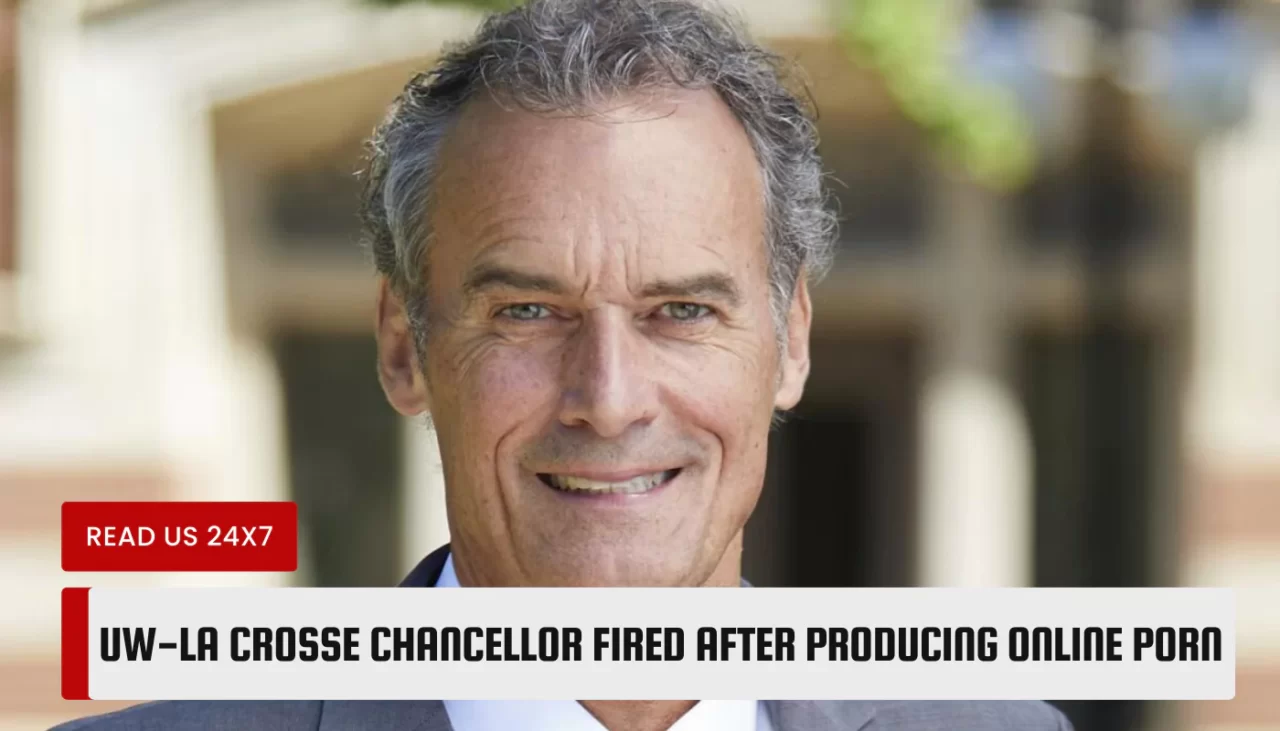The firing of former University of Wisconsin-La Crosse Chancellor Joe Gow has sparked a wave of controversy. Gow claims that he was dismissed solely because of his involvement in producing and appearing in pornographic videos with his wife, former UW-La Crosse professor Carmen Wilson. The regents voted unanimously to terminate Gow’s employment, citing discomfort with his extracurricular activities. However, Gow argues that his free speech rights have been violated, as he never mentioned the university or his role in any of the videos. This case raises questions about the intersection between personal expression and professional responsibility within higher education institutions.
Background: Who is the Chancellor and What Happened?
Joe Gow served as the Chancellor of the University of Wisconsin-La Crosse before the controversial firing. He had been in this role for several years, overseeing the operations and growth of the institution. The controversy arose when it was discovered that Gow and his wife, Carmen Wilson, a former professor at UW-La Crosse, were involved in producing and appearing in pornographic videos. This discovery led to a unanimous decision by the regents to terminate Gow from his position as Chancellor. Gow maintains that he never involved the university or his role in any of these videos.
Public reactions to the news
The news of former University of Wisconsin-La Crosse Chancellor Joe Gow’s firing for producing and appearing in pornographic videos has sparked a range of public reactions. Some individuals express shock and disbelief, questioning the appropriateness of such activities for a university leader. Others argue that Gow’s personal life should not have interfered with his professional role and that his free speech rights were violated. The controversy has ignited heated debates about the boundaries between personal behavior and professional responsibilities, prompting discussions about the evolving societal attitudes towards sexuality and individual freedoms.
Legal analysis of the situation
The controversial firing of the University of Wisconsin-La Crosse Chancellor, Joe Gow, for producing pornographic videos has raised various legal questions. While the university cited moral and ethical concerns as the grounds for termination, legal experts are examining whether the decision violates Gow’s right to freedom of expression. In addition, they are exploring whether there are any legal restrictions or regulations within the university’s policies that explicitly prohibit employees from engaging in such activities outside of their professional duties. This situation highlights the delicate balance between an individual’s rights and an institution’s authority to maintain its reputation.
Ethical implications of creating pornographic material
Creating pornographic material raises several ethical implications. Firstly, it may be seen as a breach of professional conduct for individuals in positions of authority or leadership, such as university chancellors. The production and distribution of explicit content can damage their reputation and credibility, potentially undermining the trust placed in them by the institution and the public. Secondly, there are concerns about consent and exploitation within the adult entertainment industry. While some argue that participating in pornography is a personal choice and a form of expression, others highlight instances of coercion, objectification, and harm that can occur. It is important to weigh these ethical considerations when evaluating the actions of individuals involved in adult content creation.
Discussion of the implications for higher education institutions
The controversial firing of former University of Wisconsin-La Crosse Chancellor Joe Gow for his involvement in the production and appearance of pornographic videos raises important questions about the role of higher education institutions. This incident has sparked discussions about the boundaries between personal and professional lives, as well as the influence of public perception on hiring and firing decisions. It also highlights the need for institutions to establish clear guidelines and policies regarding faculty and staff conduct, both on and off campus. Additionally, it raises concerns about the protection of employees’ free speech rights and the potential impact on academic freedom within higher education institutions.
Conclusion
In conclusion, the controversial firing of former University of Wisconsin-La Crosse Chancellor Joe Gow has raised numerous questions and sparked public debate. While the regents claim that their decision was based on their discomfort with Gow and his wife producing pornographic videos, many have criticized the violation of his free speech rights. The case also brings to light the ethical implications of creating pornographic material as a university chancellor. This incident serves as a reminder of the complex issues faced by higher education institutions and the need for careful consideration in handling controversies.


